Long before robot vacuums and delivery apps, childhood meant shouldering your fair share of household responsibilities. Whether we were earning allowance money or simply avoiding parental lectures, these chores became rites of passage that supposedly built character, responsibility, and life skills. Looking back now, perhaps our parents were right—those mundane tasks taught us lessons that no smartphone app could ever replace.
1. Mowing The Lawn With A Push Mower
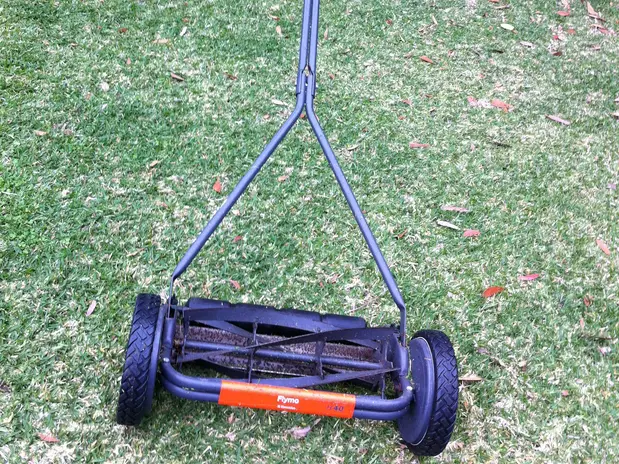
Nothing announced your graduation to “big kid” status quite like being entrusted with the family lawn mower on a sweltering Saturday morning. The symphony of neighborhood mowers created a weekend soundtrack as children navigated uneven terrain, dodged hidden rocks, and mastered the art of perfectly straight lines. Parents would inspect the edges and corners with military precision, sending exhausted young landscapers back to touch up any missed patches despite protests about blisters and heat stroke. Whirltronics takes a dive into the lawnmower’s history, as well as some surprising facts about this popular tool that will surprise even longtime owners.
The real challenge came with those manual push mowers that required genuine muscle power rather than gasoline, transforming lawn care into an Olympic event. Many of us can still recall the distinctive whirring sound of those spinning blades and the satisfaction of watching freshly cut grass spray out in neat arcs. The post-mowing smell of fresh-cut grass and gasoline became the official scent of accomplishment, even as we collapsed dramatically on the couch afterward claiming near-death experiences.
2. Washing Dishes By Hand

Before dishwashers became standard kitchen equipment, children served as the mechanical cleaning apparatus for family meals, standing on step stools to reach sinks filled with mysterious bubbles. Arguments about who would wash and who would dry created temporary alliances between siblings as they negotiated the lesser evil, with parents serving as arbiters of adequate cleanliness standards. The inevitable water splashes created puddles that required additional cleanup, extending this chore far beyond reasonable time estimates. Philadelphia Magazine writes that not only are there benefits to washing the dishes by hand, but we also enjoy some benefits.
Hot water turned fingers pruny while stubborn food particles required scrubbing that seemed disproportionate to the original meal’s enjoyment. Those without rubber gloves endured water temperatures that rivaled hot springs, building heat tolerance along with supposedly stronger immune systems. The rhythm of wash, rinse, dry created a meditative process that many of us secretly find ourselves missing in today’s button-push convenience world.
3. Taking Out The Garbage

This universally dreaded task combined unpleasant smells with the potential for mysterious liquids to drip down legs during the journey to outdoor trash cans. Children learned the art of bag-tying that would prevent catastrophic splits, often through messy trial and error that resulted in kitchen floor cleanups. The chore included negotiations about what constituted a “full” bag, with children insisting on structural engineering feats of garbage stacking to delay the inevitable trip outdoors. As noted by Upton Almanac, even garbage also offered a glimpse into the kind of person the former owner is.
Winter garbage runs required special fortitude as children sprinted through snow in inadequate footwear, while summer excursions meant facing down wasp gauntlets around metal cans. The garbage chore also served as an introduction to municipal scheduling, as children learned the specific days when large trucks would arrive to collect their smelly contributions. This responsibility often expanded to include bin retrieval from curbs, creating a full circle of garbage-related duties that haunted weekly chore charts.
4. Dusting The Living Room

Armed with rags (often repurposed from worn-out clothing) and mysterious bottles of lemon-scented polish, children waged weekly war against an invisible enemy that somehow reappeared within hours of cleaning. Parents had eagle eyes for missed surfaces, sending children back to dust chair legs, picture frame edges, and the tops of doorframes that required precarious stretching. This chore taught attention to detail through the reliable inspection system of running a finger across supposedly clean surfaces and displaying the evidence of inadequate effort. There are many different duster types, and Business Insider explores which ones are best for each job.
Dusting also involved navigating family treasures with appropriate reverence, learning which ceramic figurines could be temporarily moved and which were so precious they required working around. Family heirlooms came with warnings about their irreplaceable nature and the generations of disappointment that would follow their breakage. The particular smell of furniture polish still triggers cleaning reflexes in many adults who spent childhood Saturdays wiping down coffee tables and mantels.
5. Setting The Table For Dinner
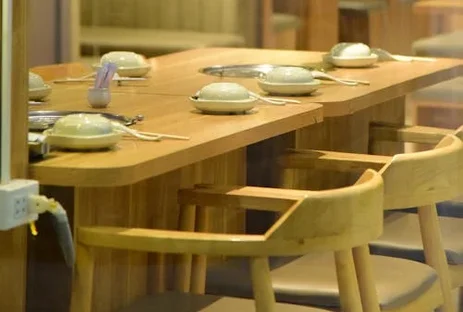
This nightly ritual transformed children into temporary etiquette experts responsible for the proper placement of forks, knives, and plates according to rules that seemed arbitrarily complex. Parents required mathematical precision in spacing and alignment, creating dinner tables that became showcases of symmetrical achievement rather than mere eating surfaces. Special occasions elevated this chore to championship levels with the introduction of rarely-used dishes, cloth napkins with mysterious folding requirements, and stemware that carried dire warnings about replacement costs.
Setting the table served as an introduction to hosting responsibilities, teaching children that presentation mattered alongside practical feeding considerations. Many of us absorbed family traditions through this daily task, learning that Grandmother’s plates were used for Sunday dinners while everyday meals featured more practical dishware. This chore often became a measuring stick for growing responsibility, with children gradually earning the right to handle more valuable dining implements as they proved their carefulness.
6. Folding Laundry
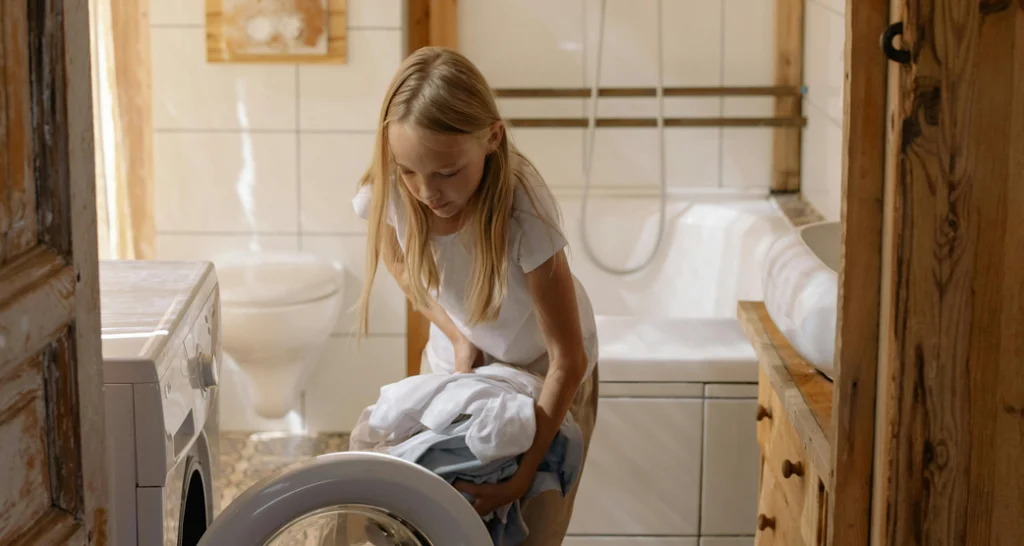
This seemingly simple task introduced children to geometry through the challenge of transforming irregular fabric shapes into neat, stackable rectangles. Parents demonstrated folding techniques with the seriousness of master origami instructors, expecting precision that would maintain wrinkle-free presentation in crowded drawers. The sorting component added complexity as children separated garments by owner, creating precarious piles that inevitably toppled during the distribution phase.
Matching socks became a particular form of domestic detective work, with orphaned individuals disappearing into the mysterious sock dimension that all households seemed connected to. Parents judged folding quality with remarkable strictness, often refolding items while delivering lectures about care and presentation that seemed excessive for garments destined for immediate wrinklement. Despite its mundane nature, successful completion of this chore provided satisfaction through visible accomplishment as chaotic laundry piles transformed into organized stacks.
7. Shoveling Snow From The Driveway

Winter mornings introduced children to adult-level physical labor as they cleared pathways while neighbors engaged in unacknowledged competitions for fastest driveway clearing. Snow removal taught practical physics lessons about leverage, weight distribution, and the unexpected heaviness of frozen precipitation. Parents undermined motivational speeches about thoroughness by pointing out patches of snow barely visible to the naked eye, sending exhausted children back into the cold for touch-ups.
The reward system for this particularly demanding chore often included hot chocolate with floating marshmallows that somehow made frozen fingers and aching backs worthwhile. Many of us can still recall the particular sound of metal shovels scraping against concrete and the satisfaction of creating that first clear path through pristine snowfall. This seasonal responsibility often coincided with school cancelations, creating the cruel irony of trading classroom time for physical labor that adults claimed built both muscles and character.
8. Weeding The Garden
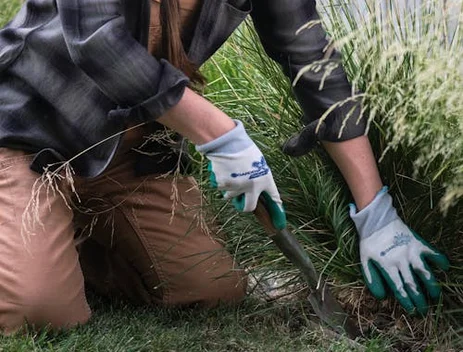
Gardening chores taught children the surprisingly difficult skill of distinguishing between wanted and unwanted plants that sometimes looked nearly identical. Parents provided cryptic guidance like “if it pulls out easily, it’s probably a weed,” creating botanical confusion that resulted in occasional accidental removal of prized perennials. The hunched position required for proper weeding introduced children to back pain normally reserved for much older individuals, while the summer sun created sweaty misery unrelieved by modern sunscreen formulations.
This chore connected children to food sources as they protected growing vegetables from invading plant species, learning patience through the slow maturation process from seed to table. Garden work unfolded in a satisfying narrative of care and harvest that modern grocery shopping cannot replicate. Many adults now find themselves instinctively bending to pull weeds spotted during walks, the childhood training seemingly hardwired into muscle memory decades later.
9. Answering The Family Telephone
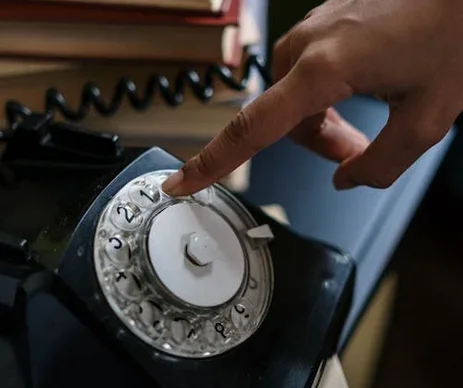
Before personal devices created individual communication channels, the household telephone served as a community portal that children learned to manage with appropriate formality. Answering the shared phone required a specific greeting script that included the family name and polite inquiry about the caller’s needs. Children served as message-takers armed with paper scraps and pencil stubs, recording names and numbers with the seriousness of professional secretaries.
Phone duty taught diction and courtesy as children reported “My mother isn’t available right now” rather than the more accurate “She’s in the bathroom.” This responsibility introduced the concept of representing the entire family through individual behavior, creating pressure to maintain appropriate telephone manners. The particular anxiety of answering calls during dinner or delivering messages incorrectly made this seemingly simple task surprisingly stressful for young communication managers.
10. Polishing Silver Or Brass
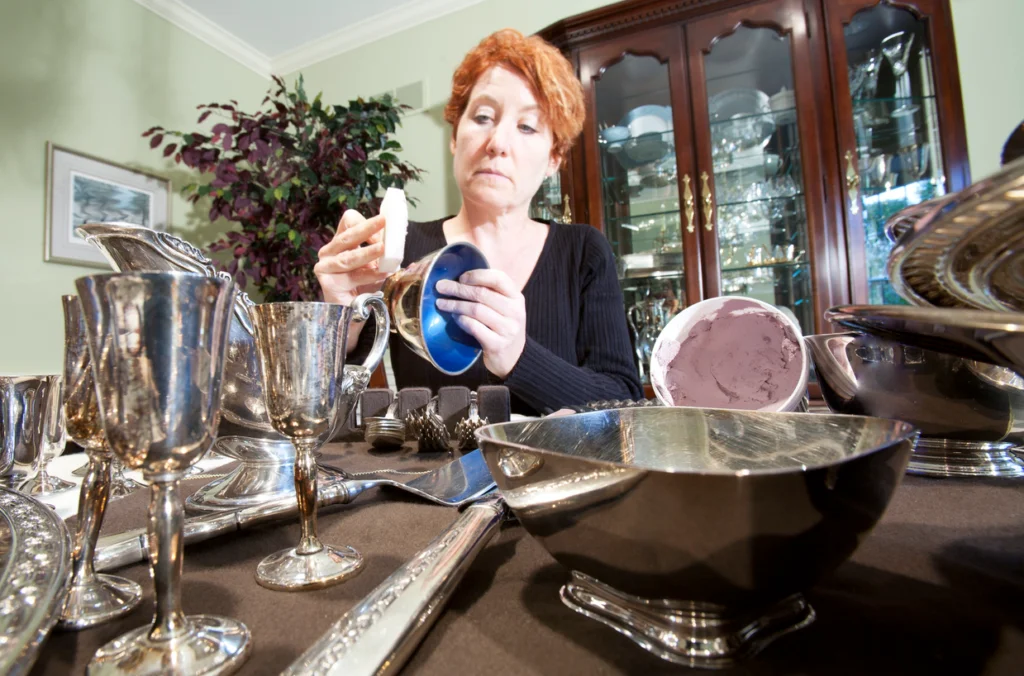
Special occasion preparations included this labor-intensive task that transformed tarnished objects into gleaming treasures through mysterious chemical processes and vigorous rubbing. Parents supervised this chore closely due to the value of the items involved and the potential for staining clothes with polish that resisted multiple washings. The transformation process amazed children as dark metals gradually revealed their true shine, providing tangible evidence of effort that other chores often lacked.
This occasional responsibility came with family stories about heirloom pieces, connecting children to previous generations through shared objects. Many of us can still recall the distinctive smell of metal polish and the way it lingered on fingers despite thorough washing. Modern children may never experience the peculiar satisfaction of watching tarnish disappear through manual effort, now that so many households have abandoned silver service and brass decorations for lower-maintenance alternatives.
11. Ironing Clothes
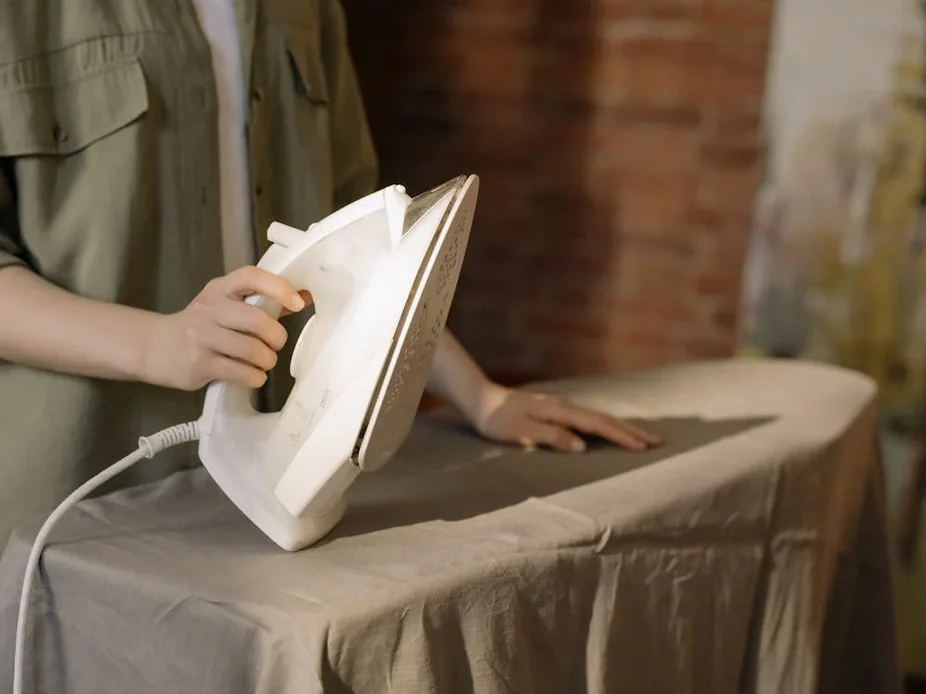
Wielding a heavy appliance capable of inflicting serious burns represented a significant milestone in childhood responsibility progression. Parents delivered extensive safety lectures before entrusting children with this potentially dangerous task, creating appropriate reverence for the privilege of pressing wrinkles from fabric. The process required patience and precision as children learned appropriate temperatures for different materials and the particular techniques required for collars, cuffs, and pleats.
This chore introduced the concept of presentation as children transformed rumpled garments into crisp, professional-looking attire ready for church services or school picture days. The rhythmic movement of the iron created a meditative quality that many adults now find themselves missing in a world of wrinkle-release sprays and permanent press fabrics. Those who mastered this skill gained valuable household currency, often trading ironing services for relief from more despised chores.
12. Making Your Bed Every Morning

This daily requirement transformed sleeping spaces from chaotic nests back to orderly displays through what seemed like unnecessary effort given their inevitable return to disarray by nightfall. Parents insisted this simple act created proper foundations for successful days, elevating a basic tidying task to near-philosophical importance. Military corners and perfectly centered pillows became standards of excellence in households where bedroom inspections rivaled military barracks for stringency.
The bed-making ritual created bookends to each day, providing structure in childhood schedules and visible evidence of basic responsibility. Many adults still find themselves automatically straightening sheets upon waking, the childhood habit transforming into a moment of control before facing daily challenges. This small act of order-creation has followed many of us through decades, perhaps validating parental claims about character-building despite our childhood eye-rolling.
These seemingly mundane tasks shaped our understanding of contribution, responsibility, and family membership long before we recognized their value. Today’s labor-saving devices have changed the childhood chore landscape dramatically, with robot vacuums replacing dust mops and dishwashers eliminating sink duty. While modern children may escape the specific challenges of push mowers and manual dish washing, parents continue finding new ways to build character through household contributions—because some traditions are simply too character-building to abandon entirely.


